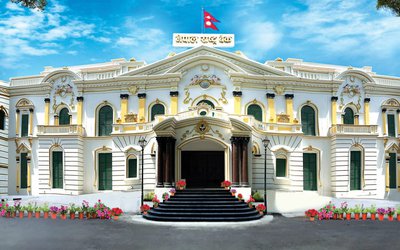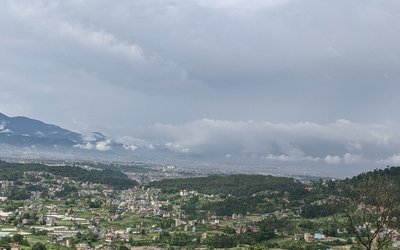I was once asked by my a friend – how hard is it to run a business in Nepal? And my answer to the question, possibly a naïve one, was – It is quite easy. Business owners running their business in the current scenario may dismiss my answer very easily. However, I gave the answer thinking of the vibrant and busy streets of places like Asan and Indrachwowk, where business owners are present in every nook and corner. I also gave the answer thinking of numerous kinds of vendors in the streets of Kathmandu. It is important to note that even in the state of current crisis, these streets and the vendors do not look less busy.
Nepal has been ranked 118th out of 150 countries in the Forbes business list. This statement may not come as a surprise but is surely disheartening. The businesses, which I thought of while giving the answer and which are many, for the most part, comprises Nepal’s informal economy. Thus, however busy and vibrant the businesses may seem, it is very likely that most of these business have not been incorporated into the national economy. It is also noteworthy that the entrepreneurs in Kathmandu do not shy away from being innovative. But Nepali entrepreneurs, no matter how innovative, face severe constraints while running their businesses.
It has been stated that one of the main reasons why Nepal has ranked so low is the high levels of corruption that is prevalent in the running of the state. One of the members of Nepalese Young Entrepreneurs Forum, who is also a business owner, well agrees with the statement. The entrepreneur comments on Nepal’s bureaucracy and describes it as “uncertain and corrupt.” He describes that it is difficult for people to accomplish things in a systematic way. “It is always easier for people who take the corrupt route and get things done.” Another reason why Nepal ranks so low is because the business climate of the country is “difficult” and it appears to worsen every day. “Of course it is super difficult”, says the entrepreneur and lists factors that makes it difficult – 10 hours of load shedding, talented people leaving the country that has created severe brain drain, precarious political scenario, and small market size. “The politicization of economic and industrial issues also discourages businesses to be big.” The effect of the earthquakes and the current crisis can, most certainly, not be ignored. “People’s willingness to spend has gone down and so have their faith in market”, says the entreprenuer. It is true that people are not too keen on spending money on non-basic needs and this is highly “threatening for businesses.” Also the “current situation has encouraged black market and it is hard for businesses with no connections.”
It is also necessary to bring to light the fact that the government of Nepal is not in a position to regulate the businesses that currently forms a part of Nepal’s informal economy.BanditaSijapati’s study lists few reasons behind the difficulty of regulating the informal sector – limited knowledge of the sector, transient nature of informal sector, the blurred line of demarcation between formal and informal businesses, and heterogeneity that can be attributed to informal sector workers. Lack of concrete steps to regulate the informal sector can also be the reason behind Nepal’s low ranking, apart from the above mentioned constraints. According to a study done by Florian Sigmund, Nepal’s informal economy is characterized by “unregistered and unorganized production” and that it employs 96% of Nepal’s economically active population. Agriculture – the largest part of Nepalese economy – is also informal to a significant extent. The study summarizes the importance of informal economy in Nepal in three ways – the informal economy is a growing part of Nepal’s national economy as compared to its small formal counterpart, although incomes are not as high, collectively, they are valuable, and it contributes significantly to employment. The study points out that however large and important, the informal sector falls outside the scope of calculated development efforts. Thus, the business that form a part of Nepal’s informal sector, such as micro enterprises (family owned shops), trading (street vendors), many small farm and farm related trade, and home basked work, remains highly ignored in terms of productivity.
Thus, Nepal’s low ranking has to be attributed to lack of institutional structures that support and facilitate businesses. It is crucial to emphasize that Nepal does not lack diverse enterprises. Nepalese businesses are a vibrant combination of both – traditional age-old enterprises that beautify the streets of Asan and Indrachowk and budding enterprises that are innovative and show great promises of expanding. These enterprises, if fostered, have great chances of contributing to Nepalese economy and improving its condition and status.
- Poor (country) on a pile of money
- Dec 16, 2016
- Careful Financial Regrouping Cutbacks Imminent
- Nov 18, 2016
- Women Securing Water
- Oct 01, 2016
- Faithful or Fearful Fluctuations
- Aug 31, 2016
- Walking on Prachanda path?
- Aug 11, 2016
















